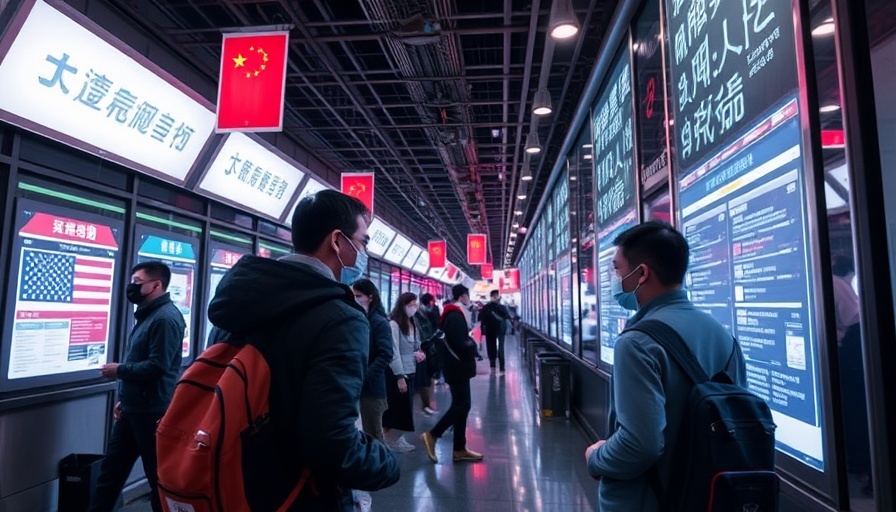
AI Tools Turned Off During Gaokao: What It Means for Students
As millions of students across China sit for the crucial gaokao exams, a significant crackdown on artificial intelligence (AI) tools has been initiated by major tech firms. This year's examination period has seen companies like ByteDance, Tencent, and Alibaba disable their AI functionalities to prevent cheating, highlighting the intense pressure surrounding these standardized tests.
Why Are AI Tools Key to Today's Education?
AI tools have become increasingly integrated into students’ study routines in recent years. They offer support ranging from generating responses to questions to assisting in homework and exam preparation. In this high-stakes environment, reliance on AI appeared to be on the rise amongst students aiming for a competitive edge. However, with the new regulations in place, students are expressing their frustrations online as they find themselves unable to leverage these innovations during the exams.
Enhanced Security Measures During the Exam
Beyond just the suspension of AI tools, authorities have implemented an array of security measures. These include biometric identification at exam centers and the use of radio signal blockers to counteract digital cheating. Such methods underscore the extent to which society values these gateway exams, which dictate the educational futures of over 13 million test-takers.
What Does This Mean for the Future of AI in Education?
The decision to halt AI use reveals a broader societal concern about fairness and integrity in examinations. It opens up a larger conversation about the intertwining of technology and education. As AI tools increasingly become part of students’ lives, how educational systems adapt to balance technological advancements with ethical considerations will be crucial. This juxtaposition brings to light the challenges of harnessing technology while maintaining the essential ethos of learning.
The Cultural Impact of Gaokao on Students
The gaokao, a defining moment for young Chinese students, not only shapes their academic paths but also carries significant cultural weight. The efforts to monitor and restrict additional assistance during this time reflect the high stakes involved. As societal norms intertwine with technology, the discussion surrounding AI reveals how advancements can be both an asset and a potential obstacle. The sentiment expressed by students during these moments—where they feel deprived of technological aids—profoundly emphasizes their emotional connection to academic success.
Concluding Thoughts on AI in Education
The actions taken by Chinese tech companies during the gaokao serve as a cautionary tale for educational institutions globally. Balancing innovation and ethical standards is not only necessary but also pivotal in shaping the future of learning. As we move forward, continual dialogue about the role of AI in educational settings will be essential for fostering equitable learning environments.
 Add Row
Add Row  Add
Add 




 Add Row
Add Row  Add
Add 



Write A Comment